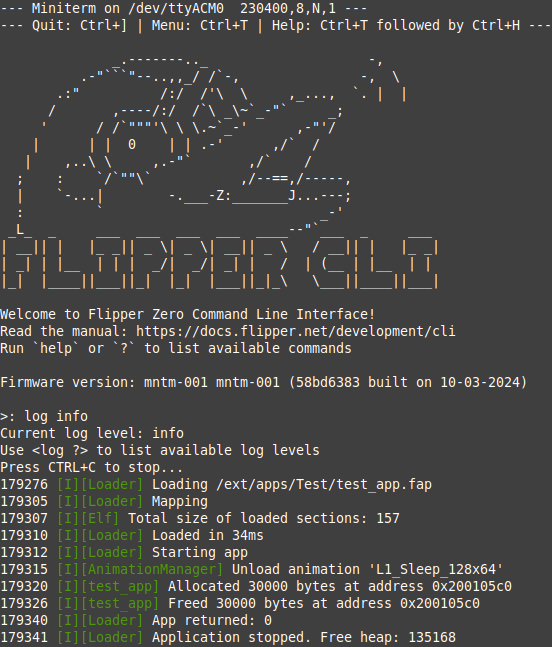This code works:
#include <stdint.h>
#include <stdlib.h>
#include <core/log.h>
#define MEMORY_TO_ALLOCATE 30000
int32_t test_app(void *p) {
(void)(p);
/* Allocate memory */
void *ptr = malloc(MEMORY_TO_ALLOCATE);
FURI_LOG_I("test_app", "Allocated %d bytes at address 0x%lx", MEMORY_TO_ALLOCATE, (uint32_t)ptr);
/* Free the memory if it was allocated */
if(ptr)
free(ptr);
FURI_LOG_I("test_app", "Freed %d bytes at address 0x%lx", MEMORY_TO_ALLOCATE, (uint32_t)ptr);
return 0;
}
However, change MEMORY_TO_ALLOCATE to 300000 - which of course is bound to fail since it exceeds the memory available and this happens:

I expected malloc to return NULL but instead it crashes the system.
I found this interesting excerpt in this recent interview:
We have designed malloc in such a way that it either returns something valid or causes the system to crash.
So that’s consistent with that I’m seeing. However, a few lines later, I read this:
A note from the PVS-Studio developers: For our users, we would like to point out that the issue regarding the special malloc function is no longer relevant. There is a special markup, it tells the analyzer to consider that the function always returns a non-null pointer:
This is a bit confusing, as I’m both reading that whatever was wrong with malloc is now fixed, yet it still won’t return a NULL pointer if it can’t allocate the memory. This is non-standard and unhelpful, as there is no way for an app to abort gracefully in case there isn’t enough memory.
EDIT: I guess I read that sentence wrong: they meant to say malloc works in a non-standard way but PVS Studio doesn’t throw a fit over it anymore
Is there another mechanism to test whether malloc will succeed before calling it to avoid risking crashing the Flipper?

